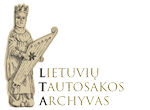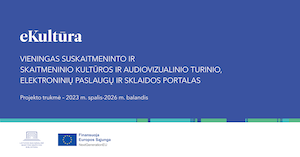Main directions of activity
The Folklore Archives Department is in charge of caring for the materials kept in the Archives. The staff inventories the acquired and newly collected folklore materials and prepares them for safekeeping; they also service and consult researchers. This department is in charge of creating and constantly updating digital databases, scanning manuscripts and photographs, and digitizing sound and video recordings, as well as running various programs and projects.
The department engages in research and publication of the most valuable sound recordings and folklore collections, and promotes the writing of studies and monographs about them. The department’s researchers analyze various questions related to the origins and processes of development in folklore, which include: the shifting traditions of Lithuanian folk songs and instrumental music as well as their expressions in contemporary culture, Lithuanian vernacular medicine, ethnobotany and so on. The research findings are published in academic articles and are presented at conferences.
The Lithuanian Folklore Archive is part of the Network of Nordic and Baltic Tradition Archives: http://www.traditionarchives.org/. We collaborate with archives of traditional culture and folklore in Poland, Germany, Austria, the USA, the Baltics, and Scandinavia. Special attention is given to questions of systematization, archiving and digitization, and we are interested in obtaining and preserving valuable folklore material from different organizations in Lithuania and beyond.
Material about folklore's rich past, as well as contemporary material, continues to be collected. The research staff of the Folklore Archives and other departments organize expeditions and individual research trips to observe and document shifts in folklore and traditional culture. For more information about the expeditions. In commemoration of the Centennial of the Restored State of Lithuania in 2018, a campaign titled “Moments of Lithuania’s Independence Centennial” was launched, and this facilitated the collection of numerous photographs, wishes, impressions, and descriptions of celebratory events.
Every year the Day of Folklore is celebrated by organizing a “Folklore week” during which the best folklore collector is recognized with the “Folklore Honey” award. The department also organizes academic conferences and seminars, presentations of publications, and offers excursions.





